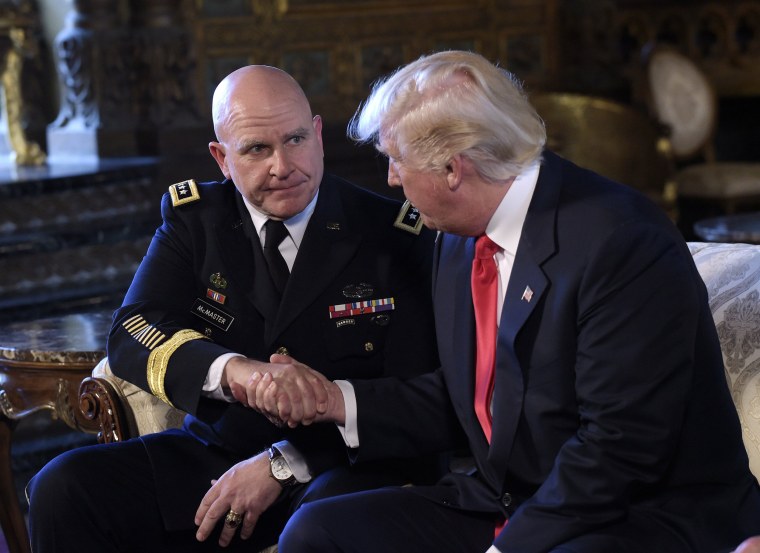President Donald Trump on Monday named Army Lt. Gen. H.R. McMaster as his national security adviser, a week after Michael Flynn resigned from the post.
During a news conference at his Florida resort, Trump said McMaster was "highly respected by everybody in the military" and is "a man of tremendous talent and tremendous experience."
Flynn resigned last Monday amid allegations that he misled Vice President Mike Pence and other senior officials about his communications with Sergey Kislyak, Russia's ambassador to the United States.
Another military man who was considered a top contender for the job, retired Navy Vice Adm. Robert Harward, turned down Trump's offer last week.
Trump's acting national security adviser, retired Army Lt. Gen. Keith Kellogg, will remain as the National Security Council's chief of staff, White House spokesman Sean Spicer said.
Trump added that John Bolton, the former U.N. ambassador whose unyielding view that Iraq had weapons of mass destruction made him a highly polarizing figure under President George W. Bush and beyond, would work with his administration in "a somewhat different capacity."
Trump reportedly considered Bolton to be deputy secretary of state. He didn't provide additional details on Monday.
A senior administration official told NBC News that Trump chose McMaster because he was both a "warrior" and "defense intellectual" — a view apparently shared by former Rep. Steve Israel, D-New York, who called McMaster "a brilliant, reasoned leader who understands both hard & soft power."
"Good pick!" Israel wrote on Twitter.
Republican lawmakers heaped praise on McMaster as well. John McCain of Arizona, chairman of the Senate Armed Services Committee, admired his "genuine intellect," while Devin Nunes of California, chairman of the House Permanent Select Committee on Intelligence, appreciated his "questioning the status quo and infusing fresh thinking and new approaches into military affairs."
McMaster has a Ph.D in military history from the University of North Carolina, and in 1998 he published "Dereliction of Duty," a critical history of the U.S. strategy in Vietnam.
But he also has a long and decorated career as an Army officer.
In the first Persian Gulf War, he was a young captain serving as a tank commander during the war's biggest battle. More than a decade later, while commanding the 3rd Cavalry Regiment during the Iraq War, he blocked insurgent routes in and out of Tal Afar — a success that earned him a gracious letter from the local mayor and plaudits from Bush.
Like Brent Scowcroft under Gerald Ford and Colin Powell under Ronald Reagan, McMaster will remain on active duty while serving on the security council, White House officials said.
During brief comments at the news conference, McMaster called the appointment a privilege.
"[I'm] grateful to you for that opportunity and look forward to joining national security team and do all I can to advance and protect interests of American people," he said.
